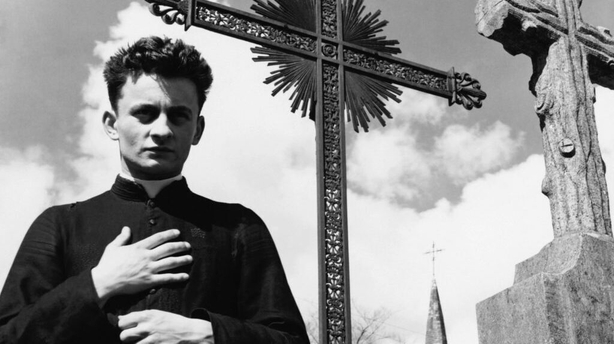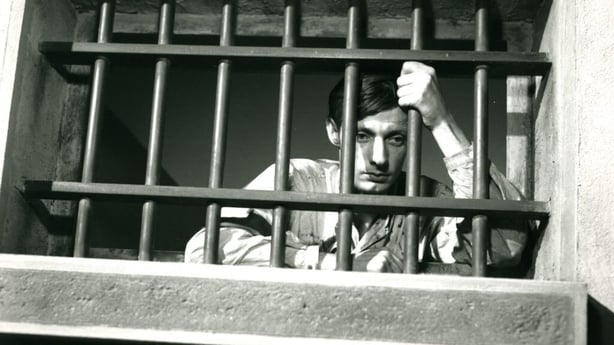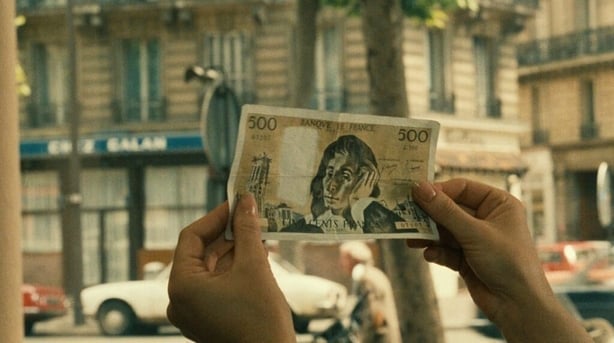As the Irish Film Institute celebrates the career of legendary French filmmaker Robert Bresson with a complete season of his works, Paul Markey celebrates a true master of cinema.
"A film is not made for you to promenade your eyes, but for you to enter and become entirely
absorbed by it."
There's some confusion surrounding the birth of the author of this quote, but by the time of his death in 1999 in his early or late nineties, Robert Bresson had made only 13 feature films in his fifty year career (Stanley Kubrick - who died the same year - had reached 12). While Kubrick was the master of grand exactitude, Bresson - the subject of a complete retrospective at the Irish Film Institute in July - breathed a fragmented minimalism.

He created an oeuvre which may have only just acceded a dozen pictures, but his influence was such that all debate surrounding the 'auteur’ theory - an argument popularised by French critic and director Francois Truffaut, that a director was the sole author of their work - ceased when it came to Bresson, who didn’t even consider himself a director. That’s right, this was a filmmaker who refused to even call himself a ‘director’ - how hardcore is that! - a term he felt was too close to the theatre, preferring the mantle ‘cinematographer’
instead.
In fact, late in his career Bresson published a book, Notes On The Cinematographer, a compilation of memos and maxims scribbled to himself from film to film, a volume which has since become a revered text to many directors. His uncompromising attitude to the art form - non-actors, real locations, using music sparingly (classical only) in complex sound mixes, emphasizing the auditory as much as the visual - was an inspiration
to the French new wave, though his own work remained remarkably unaffected by this radical new explosion in the art form. This may have resulted in a paucity of backers and a wealth of unfilmed projects, but of course it’s the ones that did get made that count.

He was often referred to as ‘the patron saint of cinema’, as much due to the streak of Catholicism which runs throughout his filmography as to his methods. His first feature, Angels Of Sin (1943), one of only two pictures he made with professional actors, was shot and released during the German occupation of France. It covers the story of a well-to-do woman who joins a nunnery specialising in rehabilitating female prisoners, where she
encounters one who claims innocence and has nothing on her mind but revenge. It was the first of several of his films featuring a prison setting, for reasons I’ll get to momentarily. Les Dames Du Bois Boulogne (1945) - wherein Paul Bernard is manipulated by an aggrieved lover, Maria Casares, into marrying a woman he doesn’t know is a prostitute - features dialogue written by the legendary Jean Cocteau. It would be the last time Bresson would tolerate any collaboration.
He distilled his methods down further in Diary Of A Country Priest (1951), with a stunning debut performance by a young Claude Laydu, as the newly arrived idealistic padre assigned to an unwelcoming French village, where some, including his colleagues, laugh at his piety. Another Bresson trait, a narrator’s ‘ice cold commentary’ (his words) began with this film, which was a great financial success and solidified his reputation as a major artist.
Watch - Bresson on the essence of cinema
This success led to the creation of the first of his two outright masterpieces. A Man Escaped (1956), inspired by the director’s - sorry cinematographer’s - own experience as a prisoner of war during World War 2, and based on the memoirs of French resistance fighter, Andre Devigny. A more utterly engrossing and meticulous telling of a prison escape you will never see. This is not a story of a jaunty gang of fellows making a break for it, but one man’s determination, again and again, to break free of his captivity, which ultimately can be read as a metaphor for Christian salvation.
A Man Escaped was hugely popular on its release, winning best director at the 1957 Cannes Film Festival. Bresson wasted no time following it up with what has become his other most widely seen work, Pickpocket (1959), written in a few months and shot on the fly with his usual ensemble of non-actors, the standout this time a debut from Martin LaSalle, as a petty thief who falls in with a gang of professional pickpockets and masters the trade to the point that it becomes an art form. A great influence on writer and director Paul Schrader (Taxi Driver, First Reformed) who rhapsodised about it during his visit to the Dublin Film Festival in 2018.
Watch: Filmmaker Paul Schrader on Bresson and transcendental filmmaking
Though not particularly well received upon release, The Trial Of Joan Of Arc (1962) - based on actual historical transcripts of the trial - still managed to win the Jury Prize at Cannes the following year, and allowed Bresson to maintain a momentum of sorts, shooting several films in the sixties and early seventies, often inspired by Russian literature: Au Hasard Balthazar (1966), a gut-wrenching allegorical tale of a girl and her donkey, together and then separated, the abuse they suffer throughout the years, often at the hands of the same people; Mouchette (1967), a coming of age story set in a rural French village; A Gentle Woman (1969), his first feature in colour, and Four Nights Of A Dreamer (1971) were more minor key adaptations of Dostoyevsky stories transported to 1960s France.
Bresson filled out the nineteen seventies with a long cherished adaption of the Arthurian legend, Lancelot Du Lac (1974) (Austrian auteur Michael Haneke often calls this his favorite film of all time) and The Devil, Probably (1977), his most controversial work, at least as far as audiences were concerned (the French especially, who took this contemporary tale of a young man’s gradual disgust at society and driven to suicide, as an attack on their materialist ways).

This societal criticism continued into the film which he said gave him the most pleasure to make, L'Argent (1983), the journey of a forged 500 franc note as it passes from person to person, eventually leading to tragedy and murder. Financed with the help of French arts minister, Jack Lang, L’Argent was to be his final
work, and once more, Bresson was to win the best director prize at Cannes. Showing up with fellow cinema-poet, Andrei Tarkovsky at his side, he was handed the honour by none other than Orson Welles:
Watch: Orson Welles honours Robert Bresson at Cannes
For a ‘cinematographer’ who refused to travel beyond French borders, you will rarely find an artist who communicates in such a universal language: the sound and the stillness of cinema, "To find kinship between image, sound and silence. To give them an air of being glad to be together, of having chosen their place."
The Irish Film Institute are screening a complete Robert Bresson retrospective through the month of July 2019 - find out more here.


